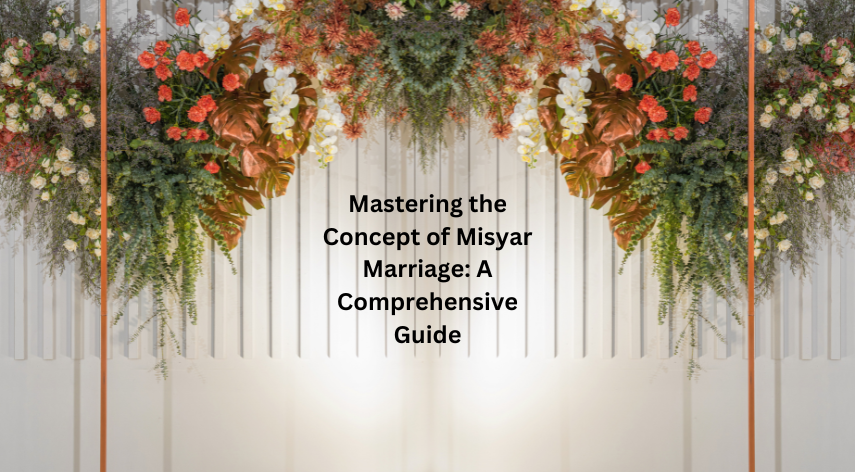In our modern society, traditional marriage norms are evolving, and concepts like Misyar Marriage are gaining traction among certain demographics. Understanding the intricacies of Misyar Marriage is crucial for individuals considering this option or seeking information about it. In this comprehensive guide, we delve deep into the concept, its implications, and considerations for those contemplating it.
What is Misyar Marriage?
Misyar Marriage is a unique form of marriage recognized in Islamic jurisprudence. Unlike traditional marriages, Misyar Marriage involves fewer financial and living obligations on the part of the husband towards his wife. In Misyar Marriage, the wife may relinquish certain rights such as cohabitation, financial support, or the husband’s obligation to provide a separate home for her.
Understanding the Dynamics
Flexibility and Convenience
One of the primary attractions of Misyar Marriage is its flexibility. It allows individuals to enter into a marriage contract without the extensive financial commitments associated with traditional marriages. This flexibility is particularly appealing to those who may be constrained by financial or social circumstances.
Legal Recognition
Despite its informal nature, Misyar Marriage is legally recognized in many Islamic countries. However, the level of recognition and acceptance may vary depending on local customs and legal frameworks. It’s essential for individuals considering Misyar Marriage to understand its legal standing in their jurisdiction.
Considerations Before Entering Misyar Marriage
Communication and Expectations
Clear communication and mutual understanding are crucial before entering into any marriage, including Misyar Marriage. Both parties must discuss their expectations, rights, and responsibilities to ensure a harmonious relationship.
Financial Implications
While Misyar Marriage offers financial flexibility, individuals should carefully consider the financial implications for both parties. It’s essential to discuss matters such as financial support, inheritance rights, and the division of assets in the event of divorce.
Social Stigma
Despite its legal recognition, Misyar Marriage may still carry social stigma in some communities. Individuals contemplating Misyar Marriage should be prepared to face societal scrutiny and judgment.
Advantages of Misyar Marriage
Independence and Autonomy
Misyar Marriage provides individuals with the opportunity to maintain their independence and autonomy while still enjoying the benefits of marriage. It allows couples to structure their relationship according to their unique circumstances and preferences.
Reduced Financial Burden
By forgoing certain financial obligations, Misyar Marriage can alleviate the financial burden associated with traditional marriages. This can be particularly advantageous for individuals facing economic constraints or seeking financial independence.
Compatibility Testing
Misyar Marriage offers a practical solution for individuals looking to test compatibility before committing to a traditional marriage. It allows couples to assess their compatibility without the full weight of traditional marital expectations.
Conclusion
In conclusion, Misyar Marriage presents a viable option for individuals seeking flexibility, autonomy, and reduced financial burden in their marital relationships. However, it’s essential to approach Misyar Marriage with careful consideration, clear communication, and an understanding of its implications. By understanding the dynamics and considerations involved, individuals can make informed decisions about whether Misyar Marriage aligns with their values and goals.
Legal Aspects and Religious Considerations
Legal Recognition and Documentation
Misyar Marriage, while recognized in many Islamic countries, may not always be legally documented in the same way as traditional marriages. Couples considering Misyar Marriage should familiarize themselves with the legal requirements and documentation processes in their jurisdiction.
Religious Permissibility
From a religious standpoint, opinions on Misyar Marriage vary among Islamic scholars. While some view it as a valid form of marriage, others express concerns about its potential implications for women’s rights and social stability. Individuals considering Misyar Marriage may seek guidance from religious authorities to ensure their decision aligns with their faith and beliefs.
Practical Considerations for Misyar Marriage
Emotional Preparedness
Entering into any marriage requires emotional readiness and commitment. Couples considering Misyar Marriage should assess their emotional preparedness for a marital relationship, including their ability to navigate potential challenges and conflicts.
Family Dynamics
The decision to enter into Misyar Marriage may have implications for family relationships and dynamics. Couples should consider how their families may react to their choice and be prepared to address any concerns or objections.
Long-Term Planning
While Misyar Marriage offers flexibility in the short term, couples should also consider their long-term plans and aspirations. Discussions about future goals, such as children, career aspirations, and retirement, are essential to ensure alignment and compatibility.
Addressing Common Misconceptions
Misconception: Misyar Marriage is a Form of Mut’ah Marriage
Mut’ah Marriage, also known as temporary marriage, is distinct from Misyar Marriage. While Mut’ah Marriage has time limitations and is often criticized for its transient nature, Misyar Marriage is intended as a long-term commitment, albeit with certain concessions.
Misconception: Misyar Marriage is a Substitute for Traditional Marriage
Misyar Marriage is not intended to replace traditional marriage but rather to offer an alternative for individuals facing specific circumstances or constraints. It’s essential to recognize that Misyar Marriage may not fulfill all the expectations and obligations of a traditional marital relationship.
Navigating Challenges in Misyar Marriage
Communication and Conflict Resolution
Like any marriage, effective communication and conflict resolution are vital for the success of Misyar Marriage. Couples should establish open and honest communication channels and be willing to address conflicts and challenges proactively.
Financial Management
While Misyar Marriage may offer financial flexibility, couples must still manage their finances responsibly. Establishing clear financial agreements and expectations can help prevent misunderstandings and conflicts related to money matters.
Social Support Networks
Building a strong support network of friends, family, and community can provide invaluable support for couples in Misyar Marriage. Surrounding themselves with understanding and supportive individuals can help mitigate the potential stigma or challenges they may face.
Final Thoughts
Misyar Marriage represents a unique approach to marriage that offers flexibility and autonomy for individuals seeking alternatives to traditional marital arrangements. By understanding the legal, religious, and practical considerations involved, couples can make informed decisions that align with their values and aspirations.
